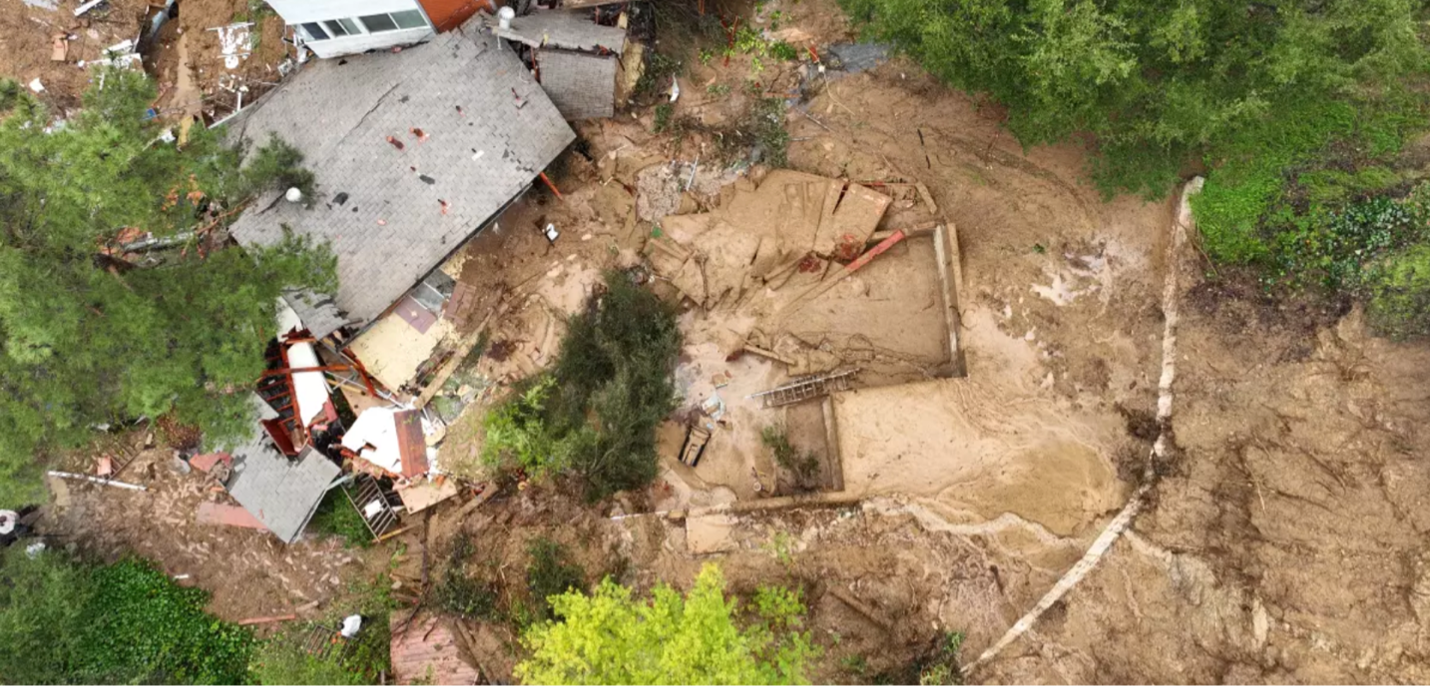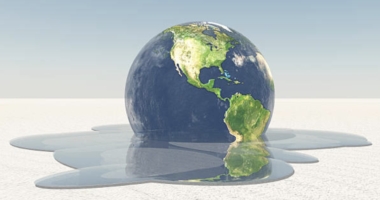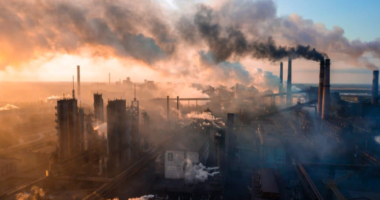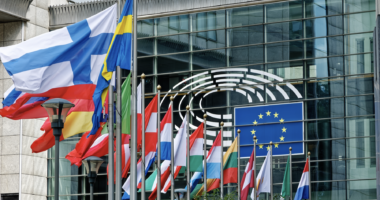Climate, Health and Equity Brief
Epic rains, human trafficking and Category 6 hurricanes
February 12, 2024
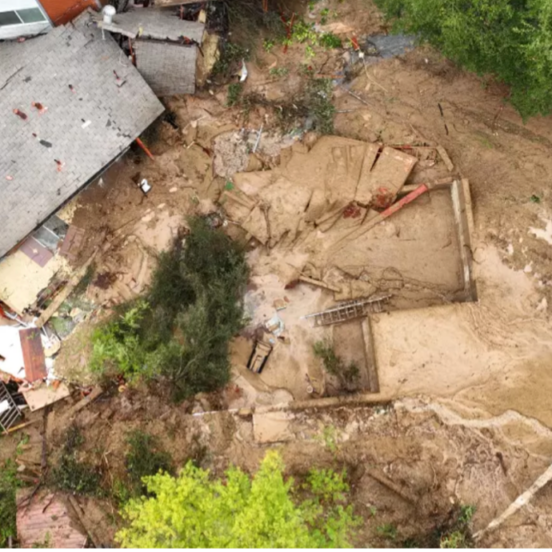
The Climate, Health & Equity Brief is GMMB’s take on the last two weeks’ news on the current impacts of climate change. If you haven’t subscribed yet, you can do so by clicking here.
Hot Topic: Fire and water. In the U.S., record-breaking tropical storms have ravaged the West Coast in recent weeks, hitting Southern California particularly hard. Intense storms and atmospheric rivers dumped nearly 12 inches of rain into streets, creeks, and rivers in just 24 hours in Los Angeles this week—a city that is in no way prepared for such deluges—causing hundreds of mudslides, igniting dozens of structure fires and requiring multiple water rescues. Recent storms are responsible for at least nine deaths statewide.
And the U.S. is not the only country facing a rough start to the year. In Chile, President Gabriel Boric declared two days of national mourning due to wildfires killing at least 131 people and leaving a trail of devastation in their wake. Further north, Colombia is experiencing severe drought, which has led to widespread winter wildfires in the normally rain-soaked country, decimating forests and displacing farmers and wildlife. Colombia’s president has requested international aid as fears grow that the fires could move beyond the Andes Mountains and erupt on the Pacific Coast and in the Amazon.
In southern Africa—a region already beset with fragile health systems and limited access to safe water—the CDC has blamed climate change for the surge in waterborne Cholera outbreaks across multiple countries following heavy rains and flooding. And Sierra Leone, severe flooding has displaced thousands and forced many of the country’s people into even more dire economic straits. One of the tragic results, according to the Advocacy Network Against Irregular Migration (ANAIM), has been a “serious increase” in human trafficking, as displacement and desperation lead people to fall for scams that promise a better life elsewhere, only to endure sexual exploitation and forced labor.
Unfortunately, the climate impacts causing this range of devastating human effects are only intensifying. In a paper out this week, scientists are now advocating for the designation of a new “Category 6” for hurricanes that pack winds over 192 mph, the risks for which scientists say have doubled since 1979, and five of which have already occurred in recent years.
Human Health
The Africa CDC has linked Africa’s worst cholera outbreak in several years to climate change as flooding across much of southern Africa has further limited access to safe water and sanitation and resulted in hundreds of thousands of Cholera cases and more than 4,000 resulting deaths. (Africa CDC, Time)
Estimates show that roughly four million people have died due to climate change since 2000—a number that is considered an underestimate as it fails to include the mental health consequences and related suicides, the longer-term impacts of wildfire smoke on longevity, or climate-driven surges in a range of deadly diseases. (Grist)
Planetary Health
The latest burst of devastating storms that swept across California have taken at least seven lives, resulted in hundreds of landslides, devastating floods and widespread power outages, and resulted in an estimated $11bn in damage statewide. (The Guardian)
Unprecedented wildfires are devastating Colombia’s normally rain-soaked mountains amid its hottest January in three decades—a situation exacerbated by climate change that has prompted the declaration of a national disaster and urgent calls for international aid. (The New York Times)
Wildfires raging through central Chile have killed at least 131 people, left more than 300 missing, consumed vast swaths of land and left a trail of destruction in their wake, prompting a declaration of national mourning by the country’s president. (AP)
New research published in the Proceedings of the National Academy of Sciences has proposed adding a Category 6 hurricane to the Saffir-Simpson Hurricane scale, arguing that human-caused climate change has doubled the risk of storms with over 192 mph winds since 1979. (Axios)
Equity
Devastating climate-fueled flooding in Sierra Leone has exacerbated economic vulnerabilities and is creating conditions ripe for exploitation, leading to a “serious increase” in human trafficking. (Al Jazeera)
A new Brookings Institution study finds that AI plays “a significant role in exacerbating the climate crisis” as it intensifies emissions and requires large amounts of energy, land and water—impacts the study finds will disproportionately burden marginalized communities without environmental justice guiding AI policy. (Scientific American)
Politics & Economy
John Podesta, a longtime Democratic strategist currently responsible for the implementation of the Inflation Reduction Act, will become senior adviser to the president for international climate policy, succeeding John Kerry as the U.S. climate envoy. (NBC News)
A new report found that global clean energy spending surged 17% last year to a record-high $1.8 trillion, yet still far below the $4.8 trillion needed annually through 2030 to achieve net zero. (Bloomberg)
The European Union Commission recommended that the EU slash net greenhouse emissions by 90% by 2040, an ambitious goal that no longer includes the agriculture sector in response to weeks of protests from farmers angry about EU green rules. (Reuters)
Action
More than a dozen communities across the U.S. have launched campaigns to replace investor-owned, for-profit electricity utilities with local, publicly-owned utilities in the face of rising rates, frequent outages, and slow adoption of renewable energy. (Grist)
Conservationists are taking drastic and innovative measures to restore devastated coral reefs following mass bleaching events in order to protect the reef ecosystems that are home to 25% percent of named marine species. (BBC, PBS)
Since Patagonia’s leadership committed to donating all profits to environmental protection and climate efforts, the company has donated more than $71 million to more than 70 groups including conservation organizations, environmental justice groups, and Democratic PACs. (The New York Times)
As research shows that women make up 61% of climate activists today, “Climate Grannies” are fighting climate change through activism, legislative support, and voter mobilization to protect the environment for their children and grandchildren. (19th News)
Life as We Know It
New Yale University surveys reveal increasing American support for renewable energy and climate policies, yet the results also highlight strong divisions on the causes of climate change and the specifics around what should be done to address it. (NBC News)
Kicker
Did you know? Super Bowl 58, which will kick off at Allegiant Stadium in Las Vegas this weekend, will be the first time the championship game is powered entirely by renewable energy. (CBS News)
Every night on the network news is like a nature hike through the Book of Revelation.
– Al Gore
The GMMB Climate, Health & Equity Brief would not be possible without the contributions of the larger GMMB team—Aaron Benavides, Stefana Hendronetto, Nikki Melamed, Sharde Olabanji and Marci Welford. Feedback on the Brief is welcome and encouraged and should be sent to [email protected].

